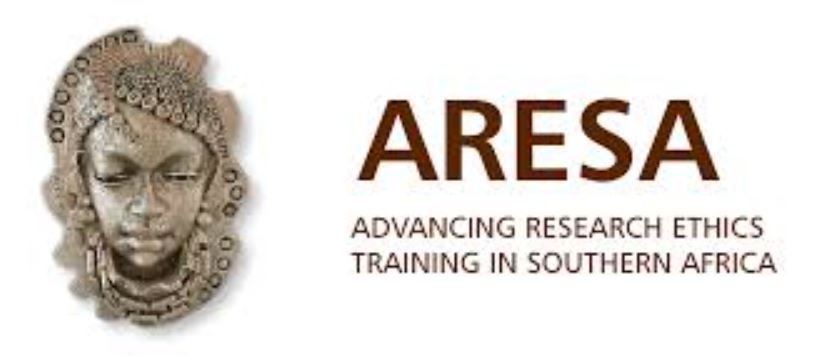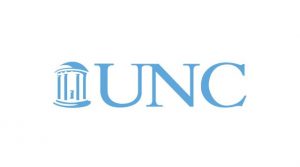IMPACT OF IMPLEMENTING AN ONLINE INTERACTIVE EDUCATION TOOL FOR FUTURE HIV "CURE" RESEARCH IN AN HIV CLINIC WAITING ROOM IN CAPE TOWN SOUTH AFRICA
IMPACT OF IMPLEMENTING AN ONLINE INTERACTIVE EDUCATION TOOL FOR FUTURE HIV "CURE" RESEARCH IN AN HIV CLINIC WAITING ROOM IN CAPE TOWN SOUTH AFRICA
Access to antiretroviral treatment (ART) in South Africa is suboptimal and erratic. For those on treatment, compliance remains a significant challenge. Interruptions to ART have negative implications for the individual and the epidemic. ART is therefore not a sustainable solution and there is an urgent need for a cure. As HIV cure research expands globally, the need to engage community members about cure is becoming a priority. It is vital that potential trial participants understand basic HIV cure research concepts. An online interactive educational tool was cocreated
with HIV stakeholders to engage and inform HIV research trial participants.
M. Hendricks, O. Varathan, F. Cassim, M. Kidd & K. Moodley
VIEWS AMONG MALAWIAN WOMEN ABOUT JOINING HIV PREVENTION CLINICAL TRIALS WHEN PREGNANT
VIEWS AMONG MALAWIAN WOMEN ABOUT JOINING HIV PREVENTION CLINICAL TRIALS WHEN PREGNANT
The pressing need to expand the biomedical HIV prevention evidence base during pregnancy is now
increasingly recognized. Women’s views regarding participation in such trials and initiating PrEP while pregnant are critical to inform evolving policy and best practices aimed at responsibly expanding evidence-based access for this population.
Kristen Sullivan1* , Tiwonge Mtande2, Elana Jaffe1, Nora Rosenberg3, Chifundo Zimba2, Irving Hoffman4, Maggie Little5, Ruth Faden6 and Anne Drapkin Lyerly1
IMPACT OF IMPLEMENTING AN ONLINE INTERACTIVE EDUCATIONAL TOOL FOR FUTURE HIV “CURE” RESEARCH IN AN HIV CLINIC WAITING ROOM IN CAPE TOWN, SOUTH AFRICA
Impact of implementing an online interactive educational tool for future HIV “cure” research in an HIV clinic waiting room in Cape Town, South Africa
Access to antiretroviral treatment (ART) in South Africa is suboptimal and erratic. For those on treatment, compliance remains a significant challenge. Interruptions to ART have negative
implications for the individual and the epidemic. ART is therefore not a sustainable solution and there is an urgent need for a cure. As HIV cure research expands globally, the need to engage community members about cure is becoming a priority. It is vital that potential trial participants understand basic HIV cure research concepts. An online interactive educational tool was cocreated with HIV stakeholders to engage and inform HIV research trial participants. The study was conducted with patients at the FAMCRU HIV clinic at Tygerberg Hospital in Cape Town, South Africa.
M. Hendricks, O. Varathan, F. Cassim, M. Kidd & K. Moodley
RULES OF THE ROAD
Rules of the Road for Patient-Driven Consent Processes
The Belmont Report remains a cornerstone of ethical protections for research participants. Its principle of respect for persons requires, “first that individuals should be treated as autonomous agents, and second, that persons with diminished autonomy are entitled to protection” (National Commission for the Protection of Human Subjects of Biomedical and Behavioral Research 1979). Informed consent is meant to operationalize respect for persons by ensuring that patients are provided with the information they require to make a considered judgment about research participation.
CORONAVIRUS PANDEMIC
The Hastings Center, March 16, 2020
Ethical Framework for Health Care Institutions & Guidelines for Institutional Ethics Services Responding to the Coronavirus Pandemic
An ethically sound framework for health care during public health emergencies must balance the patient-centered duty of care—the focus of clinical ethics under normal conditions—with public-focused duties to promote equality of persons and equity in distribution of risks and benefits in society—the focus of public health ethics.
Bioethics Committee, Montefiore Medical Center
BIOPRESERVATION AND BIOBANKING
Volume 00, Number 00, 2019
Mary Ann Liebert, Inc.
DOI: 10.1089/bio.2018.0136
TYBERG RESEARCH UBUNTU_INSPIRED COMMUNITY ENGAGEMENT MODEL:
Community engagement (CE) is an ethical imperative in research, but the knowledge base for what constitutes effective and ethically sound CE is limited. Ubuntu, as a component of responsive communitarianism where communal welfare is valued together with individual autonomy, is useful in furthering our understanding of effective CE and how it could best be achieved.
Keymanthri Moodley and Chad Beyer
FRAMEWORK FOR TIERED INFORMED CONSENT FOR HEALTH GENOMIC RESEARCH IN AFRICA
A FRAMEWORK FOR TIERED INFORMED CONSENT FOR HEALTH GENOMIC RESEARCH IN AFRICA
A generic framework for providing participant information and implementing a tiered consent process for health genomic research in Africa can help to harness global health benefits from sharing and meta-analysis of African genomic data while simultaneously respecting and upholding the autonomy and individual choices of African research participants.
Victoria Nembaware, Katherine Johnston, Alpha A. Diallo, Maritha J. Kotze, Alice Matimba, Keymanthri Moodley, Godfrey B. Tangwa, Rispah Torrorey-Sawe and Nicki Tiffin
ADVANCING RESEARCH ETHICS SYSTEMS IN LATIN AMERICA AND THE CARIBBEAN: A PATH FOR OTHER LMICs?
ADVANCING RESEARCH ETHICS SYSTEMS IN LATIN AMERICA AND THE CARIBBEAN: A PATH FOR OTHER LMICs?
Low-income and middle-income countries (LMICs) need
to do research to achieve improvements in public health, which comes with the imperative to do research ethically.
Countries in Latin America and the Caribbean have
continuously strengthened their capacities to advance
ethical research over the past few decades, though
challenges remain in ensuring that all research is ethical.
...
AFRICA'S GENETIC MATERIAL IS STILL BEING MISUSED
AFRICA'S GENETIC MATERIAL IS STILL BEING MISUSED
Biodiversity – the variation in all living organisms – is one of Africa’s richest assets. As a result, its genetic material is coveted by scientists, biotechnology companies and research institutes globally. For decades, there has been a flow of data and biosamples from the African continent to the global north. This has often been in the absence of legitimate participant consent, community engagement or data or material transfer agreements.



